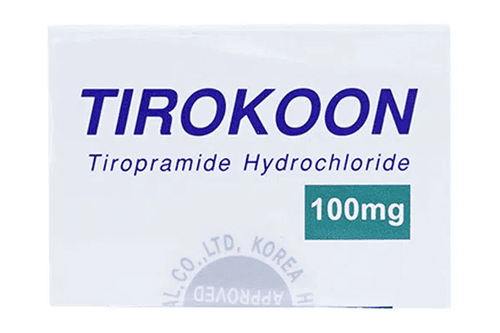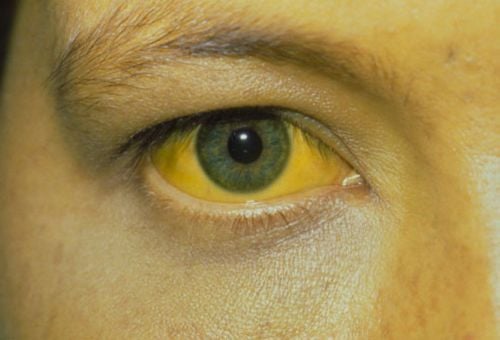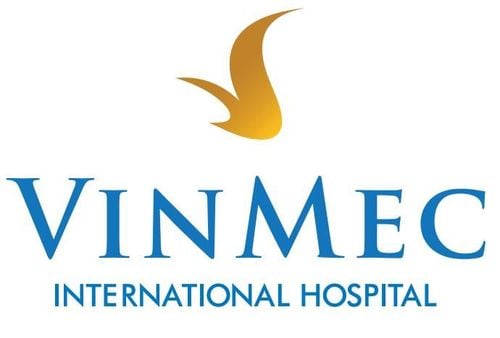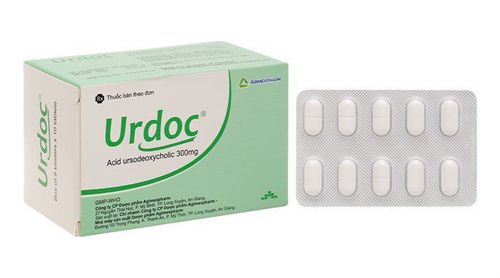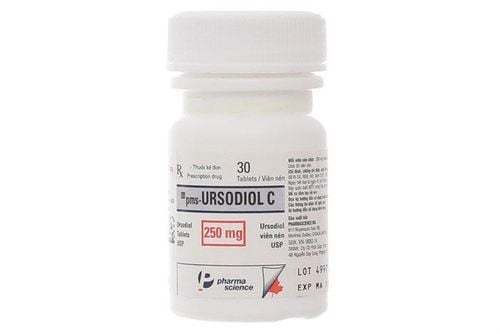This is an automatically translated article.
The article was consulted professionally with Master, Doctor Nguyen Huyen Nhung - Gastroenterologist - Department of Medical Examination & Internal Medicine - Vinmec Hai Phong International General Hospital.Gallstones are gastrointestinal diseases, occurring when there are stones in the gallbladder, the bile ducts in the liver or the common bile duct. Medical treatment using drugs to treat gallstones is one of the effective methods of removing stones from the body.
1. When should medications be used to treat gallstones?
Drugs to treat gallstones are usually indicated in the following cases:
Gallstones have not caused complications and the size of the stones is small (size is not larger than 1cm, occupies less than 2/3 of the gallbladder). Gallstones have not been calcified or calcified, the number of stones is small. Gallbladder function is still good. The bile ducts are not blocked or blocked. Do not take gallstones drugs concurrently with drugs for serious gastrointestinal diseases or liver diseases, fat-reducing drugs, stomach medicines. In addition, drugs to treat gallstones are also used in some cases where the patient does not want surgery or has contraindications to surgery. The vast majority of drugs for the treatment of gallstones are contraindicated for lactating women and pregnant women. The drug groups that work to treat gallstones include: Western medicine, Eastern medicine or traditional medicine.
2. Traditional Chinese medicine and herbal medicines work to treat gallstones
According to Oriental medicine, gallstones belong to the category of qi or jaundice. Many natural herbs are used as home remedies for gallstones.
In which, 8 main drugs are prescribed in the prescription, including: Kim Tien Thao, Ut Kim, Chi Tu, Nhan Tran, Hoang Ba, Sai Ho, Diep Ha Chau, and Chi body. Ut Kim (turmeric) contains the active ingredient curcumin, which has the effect of preventing the formation of gallstones, increasing gallbladder contractions, helping to enhance the flow of bile or effectively pushing bile sludge in the gallbladder out. Chi zi is the seed of the gardenia fruit. Active ingredients Crotin, Genipin, Crocetin in this medicine have a diuretic effect, increase the excretion of bilirubin, thereby limiting the possibility of bilirubin stone formation. Ganoderma has the effect of reducing liver enzymes, against oxidation of liver cells. Hoang Bo has the active ingredient berberine, which has the effect of increasing the secretion of bile. In addition, this medicine is also likened to a traditional medicine antibiotic, often used to support the treatment of cholecystitis caused by stones or to improve biliary dyskinesia. Sai Hu has beneficial effects on bile, protects liver cells, reduces symptoms of flatulence, abdominal distension, indigestion, nausea. In addition, Sai Ho also has anti-inflammatory effect, reducing pain caused by gallstones. Nhan Tran is a medicine that has the effect of increasing bile secretion, improving bile secretion, anti-inflammatory, and pain relief, especially in the acute stage of the disease. In addition, the drug also has the ability to protect liver cells. Diep Ha Chau: The drug contains Phyllanthin and many antioxidants, has the ability to protect liver cells, enhance liver function. When the liver is healthy, it will improve the quality of bile, thereby supporting the treatment of gallstones. It has the effect of increasing intestinal motility, reducing intestinal smooth muscle tone and antispasmodic. Thereby reducing symptoms of flatulence, nausea, indigestion ... caused by gallstones. Kim Tien Thao is a drug that inhibits crystallization, effective in the treatment of pigment stones or calcified stones. Kim primrose stimulates increased secretion of bile, helping to increase biliary motility, thereby limiting the possibility of stone formation and reducing pain caused by spasms. To achieve good results, these male herbs should be used early, preferably right after the discovery of gallstones and combined with 8 herbs at the same time. Currently, there are products for gallstone patients containing 8 herbs that are licensed for circulation, patients can refer to use.
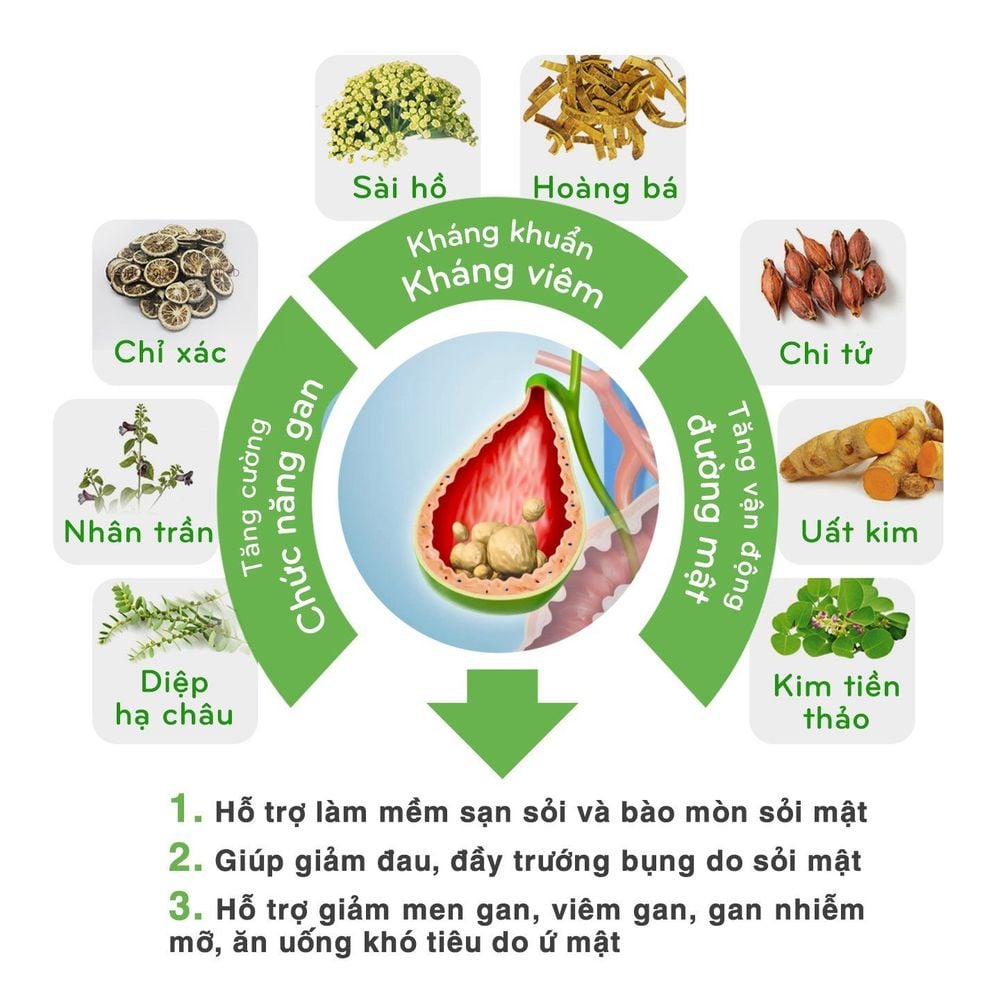
8 thảo dược quý là giải pháp giúp tan sỏi mật hiệu quả, an toàn
3. Western medicine drugs in the treatment of gallstones
The effective Western medicine group to treat gallstones is the following drugs: Pain relievers, drugs to dissolve gallstones and drugs to treat complications.
3.1. Pain relievers in the treatment of gallstones The cause of pain in gallstone disease is due to constriction of the bile ducts and gallbladder.
Painkillers acting on muscle such as: Alverin, Atropin, Papaverin... through the mechanism of canceling contractions in smooth muscle cells. In addition, there are other pain relievers such as Visceralgin or NSAID pain relievers...
Each drug will be suitable for different pain levels, patients will be consulted by doctors. before use. Absolutely do not arbitrarily use many groups of pain relievers because they can obscure symptoms, making it difficult for doctors in the diagnosis process.
Papaverin: Often used in biliary colic or pain caused by increased motility of the gastrointestinal tract. Visceralgin: The drug has antispasmodic effects on smooth muscle in both the gastrointestinal, genitourinary and urinary tracts. Patients can take this medicine for initial pain relief. Non-steroidal anti-inflammatory drugs (NSAIDs): The drug has no effect on smooth muscle spasms and reduces visceral pain, but through many studies, the use of NSAID anti-inflammatory drugs still has an analgesic effect in the treatment of pathology. gallstones. 3.2. Drugs that dissolve gallstones These drugs work to dissolve cholesterol stones by reducing the bile flow of cholesterol, changing the ratio between phospholipids and bile acids to cholesterol.
Currently, the drugs used to dissolve gallstones are mainly ursodeoxycholic acid (ursodiol), chenodeoxycholic acid and rowachol.
Ursodeoxycholic acid drug:
This is a medicine for gallstones and primary biliary cirrhosis. In fact, ursodeoxycholic acid is a bile acid in nature, which is also a hepatoprotective drug. The mechanism of the drug is to reduce excess cholesterol in the blood, help dissolve gallstones, which are mainly cholesterol. It also improves liver enzymes, protecting liver cells from damage caused by toxic bile acids. The duration of treatment with the drug ursodeoxycholic acid can be extended for 2 years. Undesirable effects during patient use include diarrhea, nausea and itchy rash, ... The drug should not be used in cases of pigment stones or calcified stones. Patients should check liver enzymes and abdominal ultrasound every 6 months. After the gallstones have dissolved, the patient needs to continue taking the drug for 1 to 3 months. Long-term drug treatment, but the risk of gallstone recurrence after treatment is quite high. Chenodeoxycholic Acid:
This is a major bile acid, synthesized in the liver and found in high concentrations in bile. Drugs used in the treatment of gallstones to dissolve cholesterol stones. The drug is effective by dissolving cholesterol that creates gallstones and inhibits the production of cholesterol in the liver, reducing cholesterol absorption in the intestine, thereby reducing the formation of gallstones. The drug can also reduce the amount of other bile acids that damage liver cells when levels are high. When taken for 2 years or more, the drug can dissolve cholesterol gallstones in 15 to 30% of patients. The drug is most effective for small gallstones less than 15mm in diameter. The drug is not effective for calcified gallstones, bile pigment stones or in patients with abnormal gallbladder function. However, even with successful stone treatment, the chance of recurrence is as high as 50% for several years after stopping the drug. Rowachol drug:
The essence of the drug is a mixture of essential oils. Rowachol drug works to reduce cholesterol secretion from the liver and has a cholestatic effect, thereby helping to gradually erode gallstones. Rowachol treatment for gallstones also lasts a minimum of 6 months to 2 years. The undesirable side effects on the gastrointestinal tract of the drug cause discomfort such as diarrhea, slow digestion, bloating... 3.3. Complications of gallstone disease Complications of gallstone disease include: cholecystitis, acute pancreatitis, biliary tract infection, gallbladder necrosis, molasses, gallbladder fluid retention, peritoneal bile infiltration , acute biliary obstruction due to common bile duct stones or cirrhosis of the liver due to cholestasis ... There are very dangerous complications, causing severe effects on health.
Medications to treat complications of the disease include:
Metronidazol, Aminoglycoside antibiotics, Quinolone or Colistin antibiotics used in case of complications causing inflammation and infection. In addition, patients can be used more diuretics, biliary drugs such as Sulphatmagnesie, Artichoke (artichaut) or Sorbitol... Above is the information about drugs to treat common gallstone disease. The use of drugs to treat gallstones needs to be prescribed by a specialist doctor based on the results of examination and diagnosis of the disease. Patients need to adhere to the correct dose and duration of use to maximize the effectiveness of the drug and limit unwanted side effects. Besides Western medicine, the use of medicinal plants to treat gallstones at an early stage helps to quickly reduce symptoms and maintain long-term treatment results.




